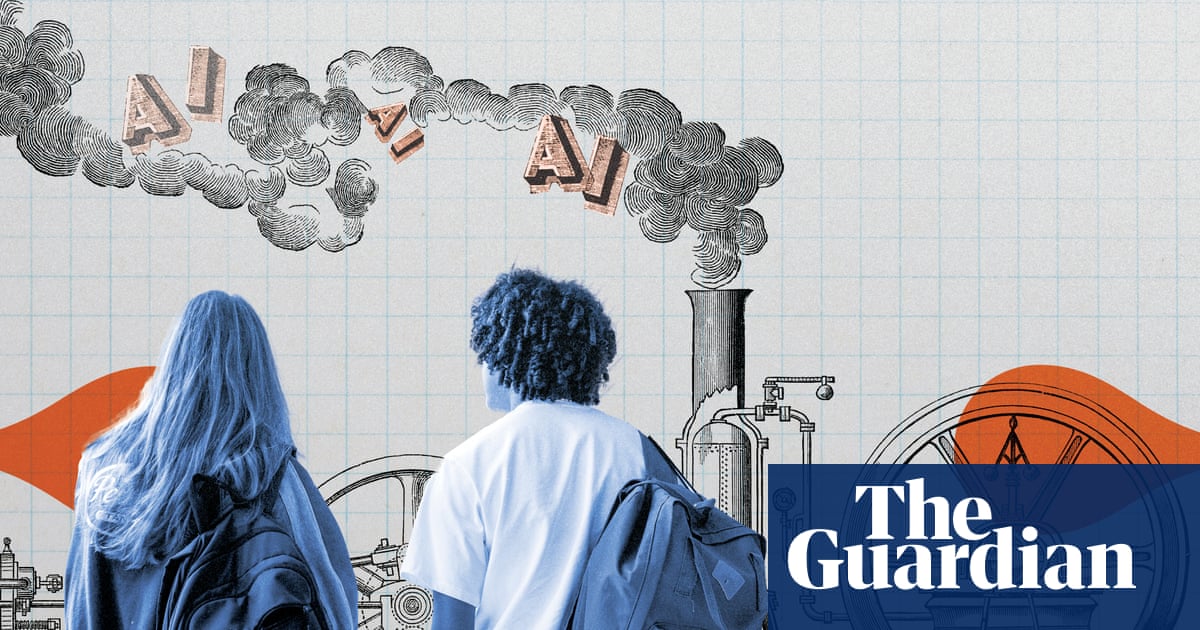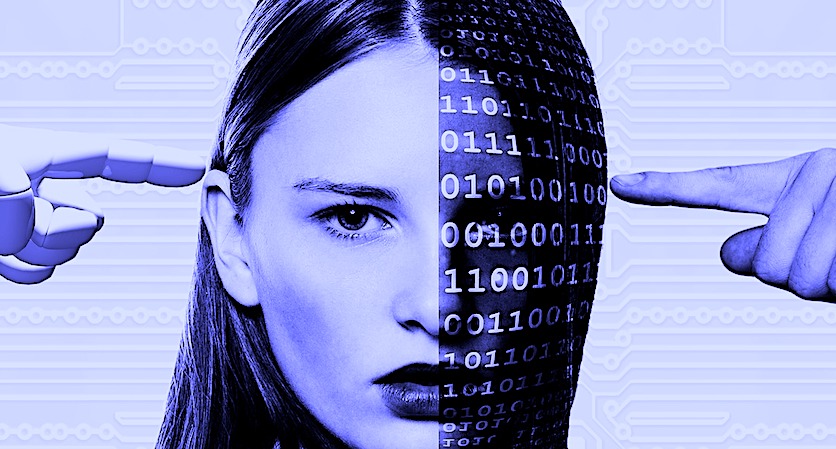OpenAI CEO Sam Altman recently told a US podcast that if he was graduating today, “I would feel like the luckiest kid in all of history.”
Altman, whose company developed and released ChatGPT in November 2022, believes the transformative power of AI offers unprecedented opportunities for young people.
Yes, there will be job displacement, but “this always happens,” says Altman, “and young people are the best at adapting to this.” New, more exciting jobs will emerge, full of greater possibilities.
For UK sixth-formers and their families looking at universities, trying to make the best possible choices about what to study – and where – in the age of generative AI, Altman’s words may offer some comfort. But in a fast-changing environment, experts say there are steps students can take to ensure they are well placed both to make the most of their university experience and to emerge from their studies qualified for the jobs of the future.
Dr Andrew Rogoyski, of the Institute for People-Centred AI at the University of Surrey, says that in many cases students will already be well versed in AI and ahead of the game. “What’s striking is the pace of change and adoption vastly outstrips the pace of academic institutions to respond. As a general truth, academic institutions are quite slow and considered and thoughtful about things. But actually this has gone from the launch of ChatGPT to ‘Should we ban it?’, to ‘OK, here are some concerns about exams’, to actually recognising it’s going to be a life skill that we have to teach in every course and that we want all our students to have equitable access to.
“So it’s gone from zero to 100 in a very short space of time, and of course, the world of work is changing accordingly as well.”
His advice to prospective students? “Be demanding. Ask the questions. I think there are some careers that are going to be very different … make sure that universities are adapting to that.”
Students who are less familiar with AI should take time to learn about it and use it, whatever their chosen subject. Rogoyski says being able to use AI tools is now equivalent to being able to read and write, and it’s important “to be resourceful, adaptable, to spend time understanding what AI is capable of and what it can and can’t do”.
He says: “It’s something you need to be able to understand no matter what course you do, and think about how it might impact your career. So read around, look at some of the speculation surrounding that.
“Then I’d start thinking about what the university’s responses are and what support there is for integration of AI. Is my course, and is the university as a whole, on the front foot with regards to the use of AI?”
There will be a lot of information online but Rogoyski recommends visiting universities to ask the academics who will be delivering your degree: “What is your strategy? What is your attitude? Am I going to get a degree that’s worth having, that will stand the test of time?”
Dan Hawes, co-founder of specialist recruitment consultancy the Graduate Recruitment Bureau, is optimistic about the future for UK graduates and says the current slowdown in the jobs market is more to do with the economy than AI. “It’s still very hard to predict what jobs there will be in three to four years, but we think it’s going to put a premium on graduates,” he says. “They are the generation growing up with AI and employers are probably very interested in getting this new breed of talent into their organisations.
“So for parents and sixth-formers deciding where to study, the first thing always to take note of is the employability of the graduates that are produced by certain universities.”
For example, maths has consistently been the top degree his clients are looking for, and he thinks this is unlikely to change. “AI is not going to devalue the skills and knowledge you get from doing a maths degree,” he says.
He agrees that AI is a concern for parents and those considering going to university, “but in the long term I think it’s going to be a good thing. It’s going to make people’s jobs more interesting, redesign their roles, create new jobs.”
Elena Simperl, professor of computer science at King’s College London, where she co-directs the King’s Institute for Artificial Intelligence, advises students to look at the AI content right across a university, in all departments. “It is changing how we do things. It’s not just changing how we write emails and how we read documents and how we look for information,” she says.
Students might wish to consider how they can set themselves up for a job working in AI. “DeepMind is proposing AI co-scientists, so entire automatic AI labs, to do research. So a university should train their students so that they can make the most out of these technologies,” she says. “It doesn’t really matter what they want to study at the university. They don’t have to study AI themselves, but they should go to a university where there is a broad expertise in AI, not just in a computer science department.”
Prof Simperl says that the evidence so far suggests it is unlikely that entire jobs will completely disappear. “So we need to stop thinking about what jobs will be killed by AI and think about what tasks can AI help with. People who are able to use AI more will be at an advantage.”
In the brave new world of AI, will it still be worth doing a degree like English literature or history? “Yes, if they’re well taught,” says Rogoyski. “They should be teaching you things that will last throughout your lifetime. The appreciation of literature, learning how to write well, learning how to think and how to communicate are enduring skills.
“The way that you might use that degree in the future will undoubtedly change, but if it’s taught well, the lessons learned will see you through. If nothing else you’ll enjoy your downtime as our AI overlords take over all the work and we’ll have more time to read books while we’re all on universal basic income.”









